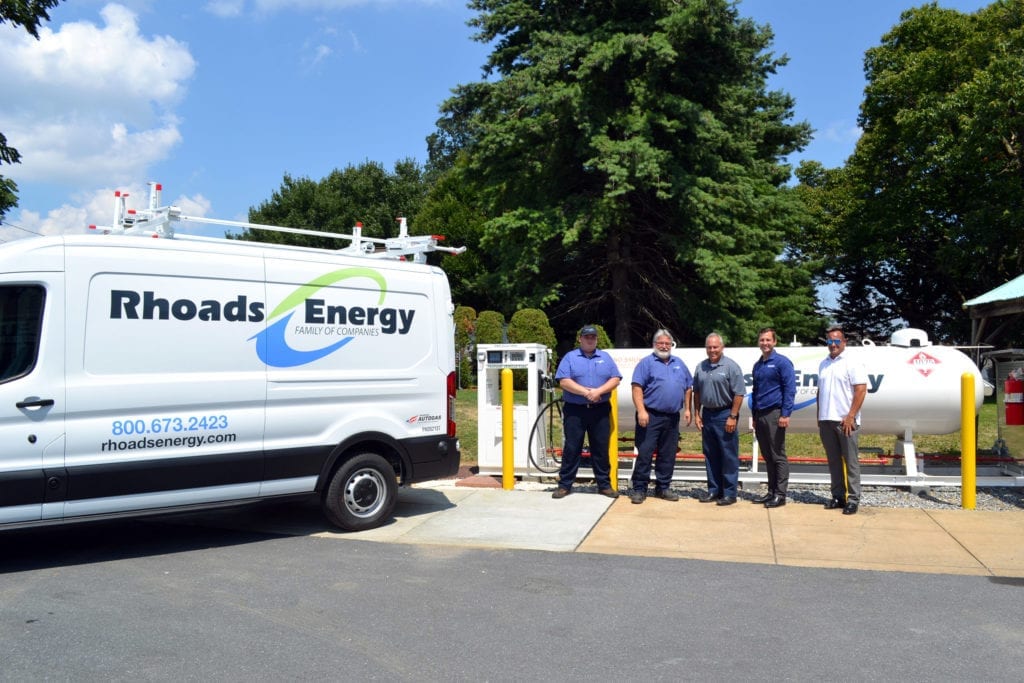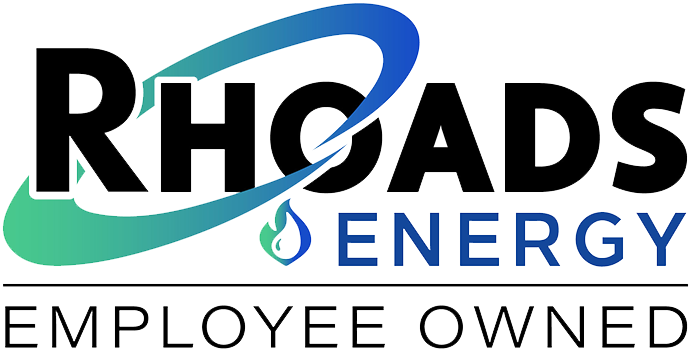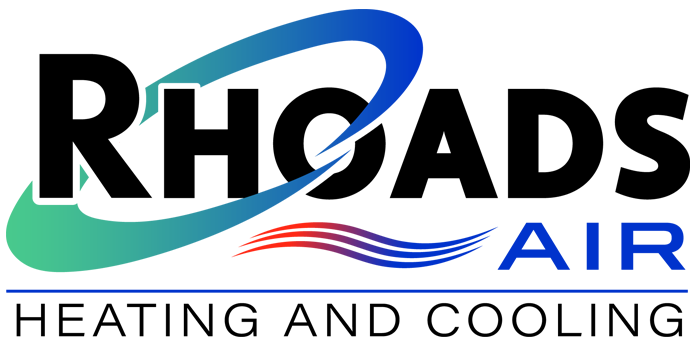Rhoads Announces Plans to Upgrade Vehicle Fleet to Propane
The Rhoads Energy Family of Companies has plenty of first-hand experience helping school districts convert bus fleets to propane: they’re quieter, cleaner and cost less to operate.
In fact, Rhoads found the advantages so compelling that the company decided to commit to expanding its own propane-powered service fleet of more than 20 vehicles over the next year.
The Rhoads Energy Family of Companies provides heating fuel, HVAC and fleet fueling services in Central Pennsylvania.
Rhoads is transitioning to a program to lease new vehicles from Enterprise Fleet, many of which will be propane-powered. The first set of vehicles, seven Ford Transit service vans and one Ford Explorer, were upgraded with propane fuel kits. The vehicles will be serviced by specially-trained technicians at Chapman Ford in Lancaster and Stoner Wade Ford in Quarryville.
The vehicles will all fuel at GR Mitchell in Willow Street, which recently received approval for public propane Autogas fueling at its fill station. Non-Rhoads propane-powered vehicles will also be able to fuel at this site.
The company expects that it will have a fleet of more than 20 propane-powered vehicles on the road during 2020. Rhoads operates several regional brands, including E.G. Smith Inc., Boyertown Oil & Propane and V.R. Boltz. All will incorporate propane-powered service vehicles into their fleets.
CEO Michael DeBerdine, III, notes that Rhoads has helped several school districts to transition hundreds of school buses to propane fuel. It was the company’s previous experience with a small fleet of propane-powered vehicles that prompted them to aggressively work with school districts looking for the same environmental and economic benefits. DeBerdine said that the overwhelming benefits of propane drove Rhoads’s decision to expand its entire propane-powered fleet:
- Lower costs Fleets save 30 to 50% on propane compared to gasoline and diesel fuel, and propane engines are less expensive to maintain.
- Cleaner air Propane eliminates an estimated 80% of the smog-producing hydrocarbon generated by diesel.
- Domestic fuel Most propane is produced in the United States, reducing our country’s reliance on foreign imports.
In addition, Rhoads has taken advantage of Alternative Fuels Incentive Grants (AFIG), a DEP program that will enable the company to defray part of the cost of converting vehicles to propane and constructing propane Autogas fill stations. DeBerdine notes that, even without the grants, Rhoads still would have converted its fleet because of the clear-cut cost savings and environmental benefits. AFIG grants are still available for other companies looking to explore a switch.
“Rhoads Energy has embraced alternative, clean transportation and has successfully secured grant funding through State initiatives,” said Tony Bandiero, Executive Director of Eastern PA Alliance for Clean Transportation (EP-ACT). “We are pleased to count Rhoads as one of our Stakeholders and in fact, in 2018, presented the company with our Alternative Fuel Visionary Award.”
“We’re going to realize significant savings with our new fleet, and we hope other companies will look at our experience and consider a transition of their own,” DeBerdine said. “There’s plenty of evidence, both locally and nationally, that propane-powered vehicles are better for our environment and better for a company’s bottom line.”
The trend toward propane-fueled vehicles in the U.S. has rapidly gained momentum. This fall, more than one million U.S. students will ride propane-powered buses to school. In addition, a wide range of transit, commercial and other vehicle fleets have taken advantage of on-site fueling possibilities offered by propane.


